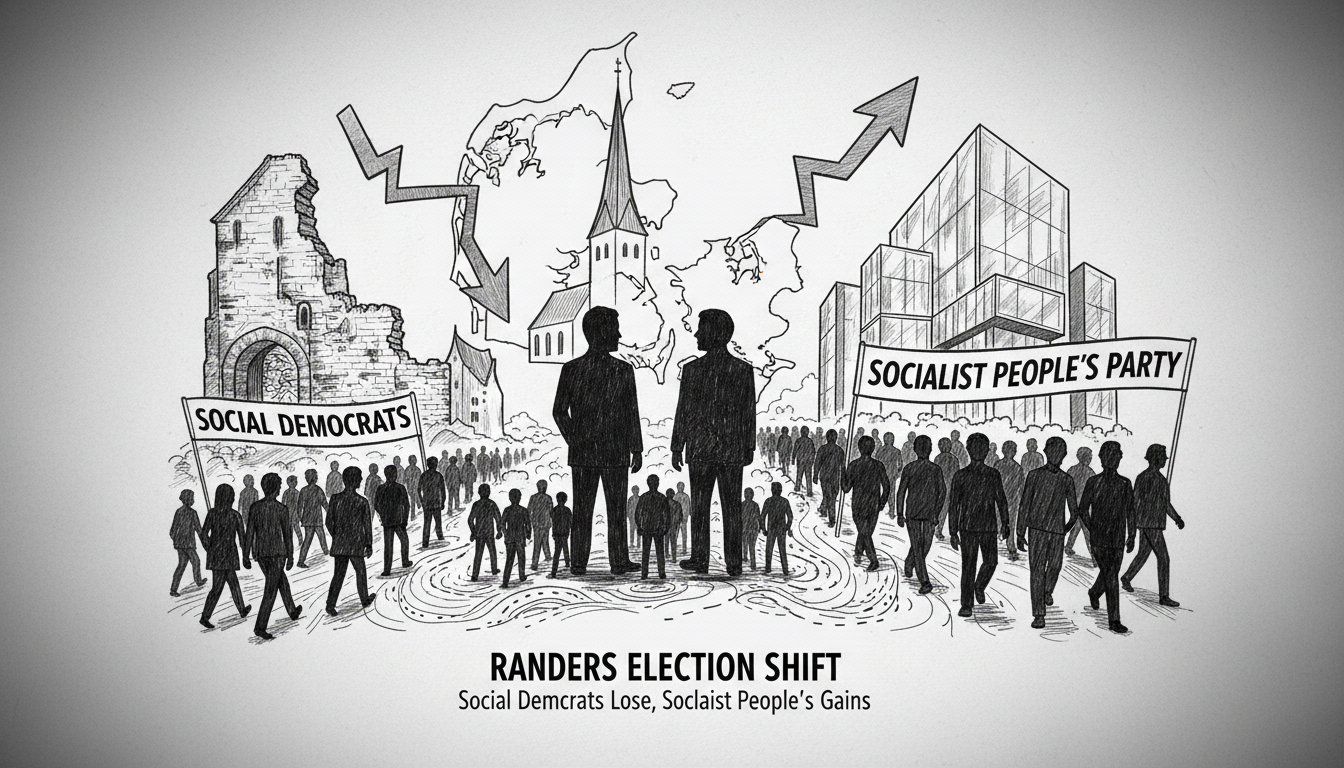Denmark's Social Democrats have suffered a major setback in Randers municipal elections. The party lost 11.1 percentage points but remains the largest party in the municipality. Current mayor Torben Hansen secured 23.1 percent of votes for his party. This gives them seven council seats, five fewer than in the previous election.
The Socialist People's Party made dramatic gains with a 10 percentage point increase. They now rank as the third-largest party with 15.1 percent of votes and five council seats. This represents one of SF's strongest local election performances in recent years.
Mayor Torben Hansen wants to serve a third term. But he faces competition from multiple candidates who have publicly stated they won't support him. The Liberal Party's Claus Berggren also seeks the mayor position. His party received 16 percent of votes, translating to five council seats. This marks a 2.6 percentage point decrease and one fewer seat than last election.
Conservative candidate Niels Jørgen Thomsen and SF's Rosa Lykke Yde both confirmed they will pursue the mayor's office. The Conservatives suffered a five percentage point decline, securing only 6.1 percent of votes and two council seats. This halves their representation in Randers municipal council.
The election follows a turbulent term dominated by the Nordic Waste landslide controversy. The environmental disaster received extensive coverage in both local and national media. Council operations have also been hampered by years of poor cooperation and harsh political rhetoric.
Negotiations are now underway to form a new municipal government. A representative from the Social Liberal Party described the situation as completely open and predicted a long night of discussions. Danish municipal elections typically involve complex coalition building when no single party secures majority control.
The results reflect broader trends in Danish local politics where traditional parties face challenges from both left and right. Randers has historically been a Social Democratic stronghold, making these losses particularly noteworthy. The municipality's industrial heritage and environmental concerns likely influenced voter decisions.
International observers should note that Danish municipal governments handle important local services including schools, elderly care, and environmental planning. The election outcome will directly impact how Randers addresses ongoing challenges like the Nordic Waste cleanup and economic development.
What happens next depends on which parties can form working alliances. With seven parties represented and no clear majority, the negotiation process could take several days. The final coalition will need to address both immediate environmental concerns and long-term economic stability for the region.

